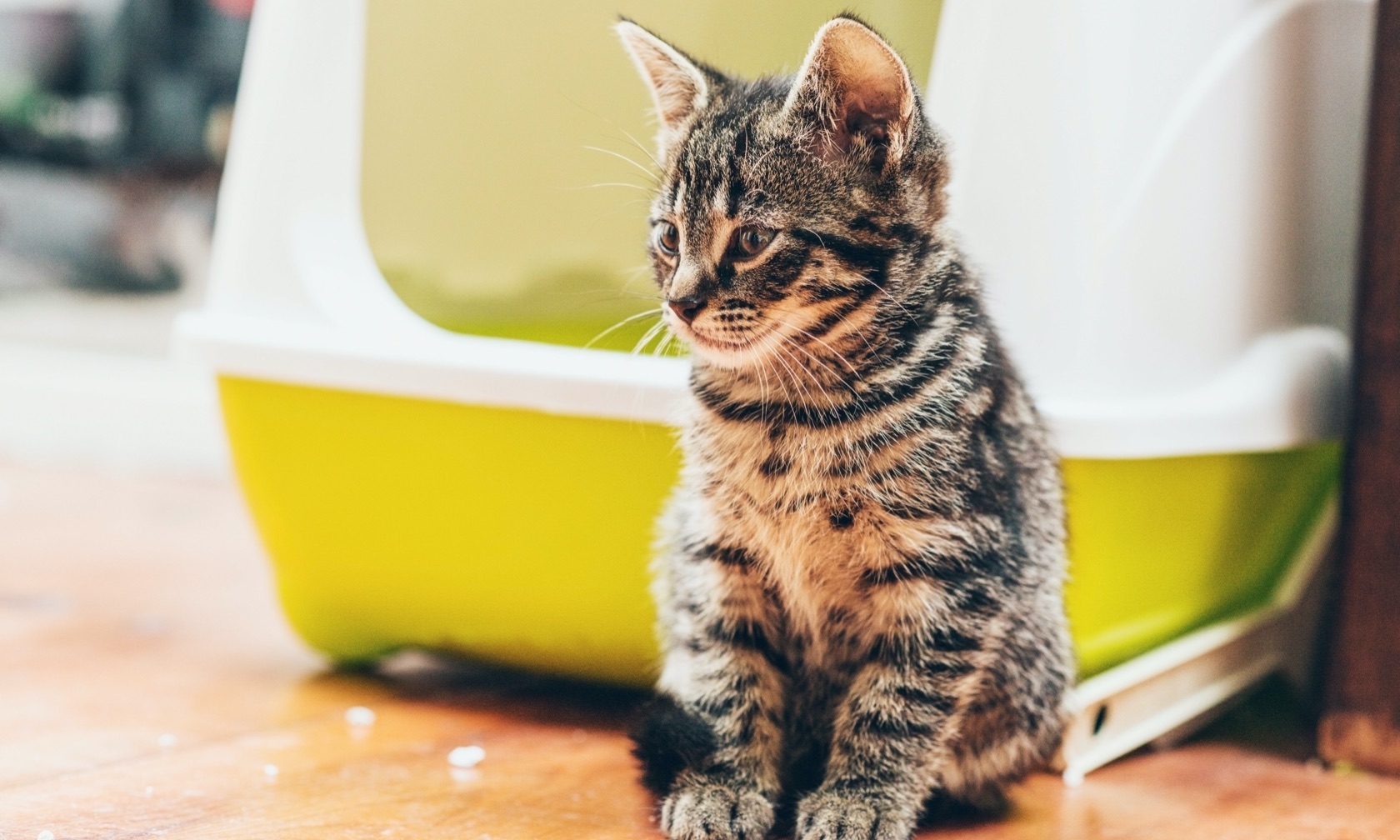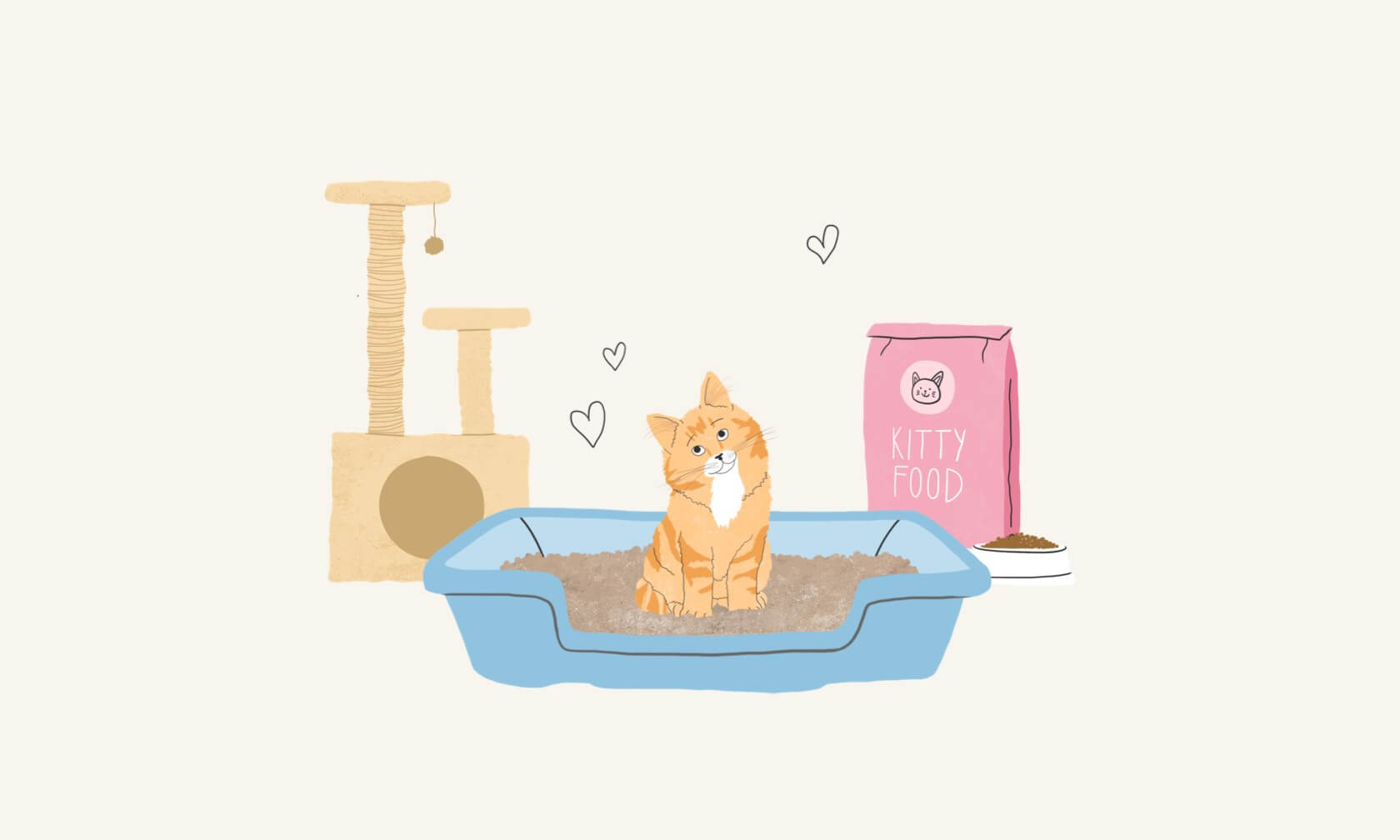A solid litter box setup will not only save your carpets, clothes, and bed from accidents, but also help your cat stay happy and healthy.
How Many Litter Boxes Should I Have?
A good rule of thumb is to count the number of cats you have and then add one. So, if you have two cats, three litter boxes is ideal. Cats like having multiple options. If you have more than one cat, setting up multiple boxes will help prevent turf wars and decrease the chances of developing certain undesirable behavioral issues and urinary medical conditions.
Where to Put the Litter Box
Where you put the litter boxes is just as important as having the right number of them. Place them in different areas and levels of your home to give your cat a chance to mix it up. If you do have to place two in the same room, make sure there is some space between them. Avoid high-traffic areas, heating and cooling vents, and noisy appliances, as these make going to the bathroom less peaceful for your cat. Make sure they have easy access to enter and exit the litter box from multiple angles.

What Size Litter Box Should I Get?
The more spacious your cat’s boxes are, the better. Ideally, the size of the box should match your cat’s size — from the tip of their nose to the end of their tail. If you opt for a roofless box, make sure the sides of the box are low enough that they can easily get in and out.
Some cats love having a roof over their litter boxes, while others prefer wide-open spaces. Set up both types to see which your cat prefers.
Find Their Favorite Litter
Do a litter test to see which kind your cat likes best. Start with unscented clumping clay (typically the most-loved option), but feel free to test out some non-clumping varieties as well, such as crystals or those made from corn or wheat. Avoid heavily-scented litters and try a low-dust option to avoid irritating your cat’s nose and lungs.
Keep the Litter Box Clean
Cats can be clean freaks, so scoop their box once daily at a minimum (and more frequently if you have multiple cats). This will also help you figure out what’s going on with your cat’s health. Check urination frequency as well as the frequency and consistency of their poop. If you notice a concerning trend, call your veterinarian.
Once a month, try to dump out and wash the litter box to eliminate any bacteria or caked-on litter messes. Stick to soap and water and avoid any harsh cleaners or bleach.
ZPC-00537R3



